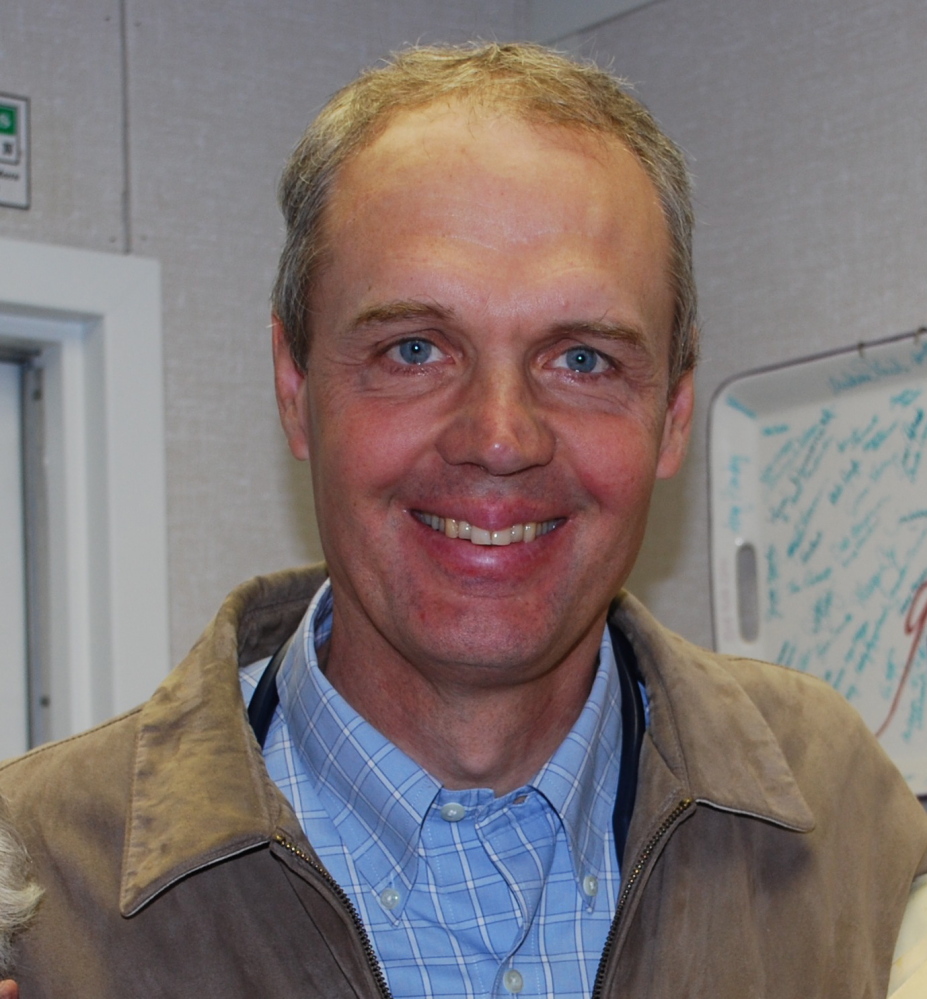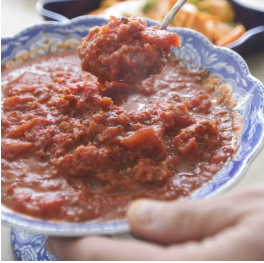Stephanie Petkers wanted to lose a little weight. So last spring, she enrolled in a wellness program at Parkview Adventist Medical Center in Brunswick. Ten days later, she was nine pounds lighter and filled with a new appreciation for the link between diet, lifestyle and health.
“I definitely have changed,” said Petkers, 45, who owns The Wishful Moon gift shop in Freeport and says she no longer eats red meat, bacon or grilled meats, and she seeks out vegan options at restaurants. “And I’m a lot more aware. There’s a lot more to it than weight loss. I sleep better. I feel better. That’s why I recommend it to so many people.”
For almost 20 years, the Lifestyle Choices program has been quietly transforming the health and well-being of local people with a program based around all-you-can-eat vegetarian food.
First created as an alternative to surgery and prescription drugs for patients suffering from severe heart disease, diabetes and other chronic conditions, today people like Petkers take the course as a sort of bodily tune-up.
Participants go through a series of lab tests and fitness tests before the course starts, which establishes a baseline for cholesterol, blood pressure, blood sugar, hydration, body composition and other markers. Everyone is tested again at the end of the course.
SURPRISING RESULTS
When her initial test results came back, Petkers, whose husband, Jon Petkers, is a physical therapist at Parkview involved with the Lifestyle Choices program, discovered her “blood pressure was higher than it should be and my blood sugar was getting to be pre-diabetic.” She also had elevated cholesterol levels.
But after 10 days in the Lifestyle Choices program, her cholesterol level dropped 40 points, her blood sugar level fell 25 points and her blood pressure was back to normal.
“What underlies all chronic disease is chronic inflammation,” said Dr. Timothy Howe, the physician behind the program. “And so the (plant-based) diet addresses that. You get the inflammatory markers down and then the body starts to heal.”
Howe said Petkers’ experience is not unique. While the average patient used to lose around seven pounds, it’s “about four pounds now because we’re getting thinner people taking the course,” he said.
The average participant shaves 10 points off his or her blood pressure and 50 points off his or her cholesterol.
PLANT-BASED PRESCRIPTION
Howe, who practices internal medicine in Brunswick and serves as medical director of the wellness department at Parkview, launched the Lifestyle Choices program in 1995 as a way to reach beyond his circle of patients. His prescription? Plant-based meals, water, fresh air, stress reduction and exercise.
“At first it was hard to fill the classes,” Howe said. “So we had to do a lot of advertising. But now when we announce a class, it fills right up because people are so much more aware of the environmental implications and the health implications of what we’re eating.”
The program has been helped by word-of-mouth endorsements from people like Petkers who recommend it to friends and family. Howe said more than 1,500 people have been taken the course since its inception.
Most insurance plans cover the cost of the program. Without insurance, the cost is approximately $800.
Whether referred by a doctor or by a friend, participants meet nightly and enjoy a shared meal, prepared using whole plant foods and no meat, seafood, dairy, eggs or refined vegetable oils. After dinner, the group heads out for a walk. This is followed by an educational program, which might include a cooking demonstration or a talk by Howe. Everyone leaves with breakfast and lunch for the following day.
EATING MINDFULLY
“I tell people, ‘My goal is not to make you a vegan, but to get you to think about every bite you put in your mouth,'” Howe said. ” ‘Whatever you eat, I want you to eat thoughtfully.’ We determine a lot that happens in this world by the way to eat.”
Dishes served during the course include items like spinach-and-tofu stuffed lasagna, whole-grain waffles, spicy sweet potatoes and thick and spicy tomato stew (see recipe). Howe encourages attendees to pile their plates as high as they like and come back for seconds.
“If I have patients having trouble losing weight, I say, ‘You’re not eating enough food and you’re not eating the right foods,’ ” Howe said.
Calling him charismatic and knowledgeable, Petkers found Howe’s lectures to be a highlight of the program. “I took a ton of notes,” she said.
Howe and his team generally host two to three 10-day sessions a year. The next session begins Sept. 22.
A key member of the program’s team is Sheryl McWilliams, a hospital vice president who heads the wellness department.
McWilliams says initially the people who signed up for the course had only one other choice. Their doctors had all told them some version of “either go home and die or try something different,” she said.
While people facing the same choice today still take the course, McWilliams acknowledges that “since then, a lot has changed. Now a lot of people are interested in trying something out of the box.”
Or maybe a vegetable diet is no longer a radical idea?
As McWilliams asks, referring to open heart surgery, “what is more radical: to saw someone’s chest open or put them on a diet and exercise program?”
Avery Yale Kamila is a freelance food writer who lives in Portland. She can be contacted at:
avery.kamila@gmail.com
Twitter: @AveryYaleKamila
Send questions/comments to the editors.



